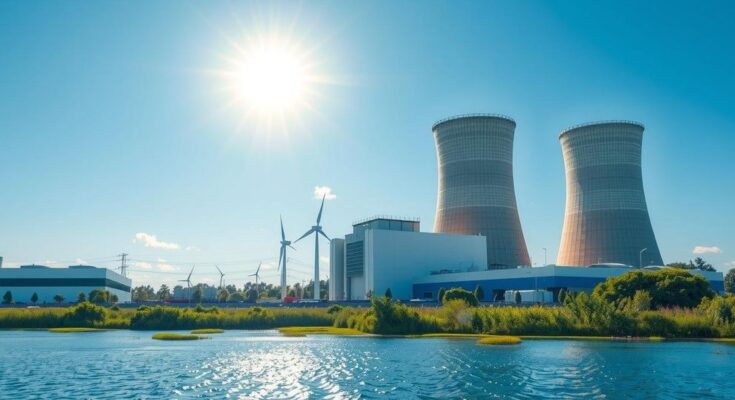South Africa is willing to consider bids from Russia and Iran for expanding its nuclear power capacity, which could affect ties with the United States. Minister Gwede Mantashe emphasized the need for open bidding regardless of country origin. Despite U.S. concerns, South Africa is determined to advance its nuclear energy agenda while managing negotiation complexities with its partners.
In a recent statement, South Africa expressed openness to accepting bids for expanding its civilian nuclear power capacity from countries such as Russia and Iran. This assertion from Minister of Mineral and Petroleum Resources Gwede Mantashe has raised concerns among analysts, as it may further strain relations with the United States, especially in light of a halted strategic energy pact. South Africa seeks to increase its nuclear power capabilities to alleviate ongoing electricity shortages and aims to enhance its commitment to minimizing carbon emissions.
Koeberg, located in South Africa, is the continent’s sole nuclear power facility, with plans to add 2,500 megawatts of capacity. Minister Mantashe highlighted that the government could not exclude any country from the bidding process, stating, “We can’t have a contract that says Iran or Russia must not bid; we can’t have that condition.” If Russia or Iran presents the best offers, the government remains willing to engage.
With tensions arising over the country’s collaborations, the United States has taken notice following an executive order by President Donald Trump, which described South Africa as “reinvigorating its relations with Iran to develop commercial, military, and nuclear arrangements.” However, officials from South Africa clarified that there are no existing agreements with Iran regarding nuclear cooperation.
The U.S. State Department did not address the implications of potential Iranian or Russian involvement in South Africa’s nuclear plans. The tender for new nuclear projects, originally intended for last year, has faced delays due to legal challenges initiated by the coalition government, which includes the opposition Democratic Alliance party.
After nearly a decade of negotiations, South Africa and the U.S. are attempting to finalize a new civilian nuclear agreement, known as a Section 123 Agreement. This contract is essential for exporting U.S. nuclear fuel and equipment, and its renewal has become complicated due to tensions following the recent executive order.
Zizamele Mbambo of South Africa’s energy ministry indicated that negotiations are ready for finalization, yet legal processes remain unfinished. The failure to renew the accord could impede the power utility Eskom’s access to reactor fuel from U.S. suppliers like Westinghouse, placing additional constraints on South Africa’s energy production capabilities.
In summary, South Africa’s consideration of Russia and Iran for nuclear capacity expansion reflects its urgent need to address electricity shortages while pursuing emission reduction. This move has the potential to complicate relations with the United States and poses challenges in securing a pivotal nuclear cooperation agreement. The outcomes of these developments could significantly impact the energy landscape in South Africa in the years to come.
Original Source: www.usnews.com




